第392章 Chapter 4(1)
Containing two letters in very different stiles MY WORTHY FRIEND,- I informed you in my last that I was forbidden the use of the waters, as they were found by experience rather to increase than lessen the symptoms of my distemper. I must now acquaint you with a piece of news, which, I believe, will afflict my friends more than it hath afflicted me. Dr. Harrington and Dr. Brewster have informed me that there is no hopes of my recovery.
I have somewhere read, that the great use of philosophy is to learn to die. I will not therefore so far disgrace mine, as to show any surprize at receiving a lesson which I must be thought to have so long studied. Yet, to say the truth, one page of the Gospel teaches this lesson better than all the volumes of antient or modern philosophers. The assurance it gives us of another life is a much stronger support to a good mind, than all the consolations that are drawn from the necessity of nature, the emptiness or satiety of our enjoyments here, or any other topic of those declamations which are sometimes capable of arming our minds with a stubborn patience in bearing the thoughts of death, but never of raising them to a real contempt of it, and much less of making us think it is a real good.
I would not here be understood to throw the horrid censure of atheism, or even the absolute denial of immortality, on all who are called philosophers. Many of that sect, as well antient as modern, have, from the light of reason, discovered some hopes of a future state; but in reality, that light was so faint and glimmering, and the hopes were so incertain and precarious, that it may be justly doubted on which side their belief turned. Plato himself concludes his Phaedon with declaring, that his best arguments amount only to raise a probability;and Cicero himself seems rather to Profess an inclination to believe, than any actual belief in the doctrines of immortality. As to myself, to be very sincere with you, I never was much in earnest in this faith till I was in earnest a Christian.
You will perhaps wonder at the latter expression; but I assure you it hath not been till very lately that I could, with truth, call myself so. The pride of Philosophy had intoxicated my reason, and the sublimest of all wisdom appeared to me, as it did to the Greeks of old, to be foolishness. God hath, however, been so gracious to show me my error in time, and to bring me into the way of truth, before I sunk into utter darkness for ever.
I find myself beginning to grow weak, I shall therefore hasten to the main Purpose of this letter.
When I reflect on the actions of my past life, I know of nothing which sits heavier upon my conscience than the injustice I have been guilty of to that poor wretch, your adopted son. I have, indeed, not only connived at the villany of others, but been myself active in injustice towards him. Believe me, my dear friend, when I tell you, on the word of a dying man, he hath been basely injured. As to the principal fact, upon the misrepresentation of which you discarded him, I solemnly assure you he is innocent. When you lay upon your supposed deathbed, he was the only person in the house who testified any real concern; and what happened afterwards arose from the wildness of his joy on your recovery; and, I am sorry to say it, from the baseness of another person (but it is my desire to justify the innocent, and to accuse none). Believe me, my friend, this young man hath the noblest generosity of heart, the most perfect capacity for friendship, the highest integrity, and indeed every virtue which can ennoble a man. He hath some faults, but among them is not to be numbered the least want of duty or gratitude towards you. On the contrary, I am satisfied, when you dismissed him from your house, his heart bled for you more than for himself.